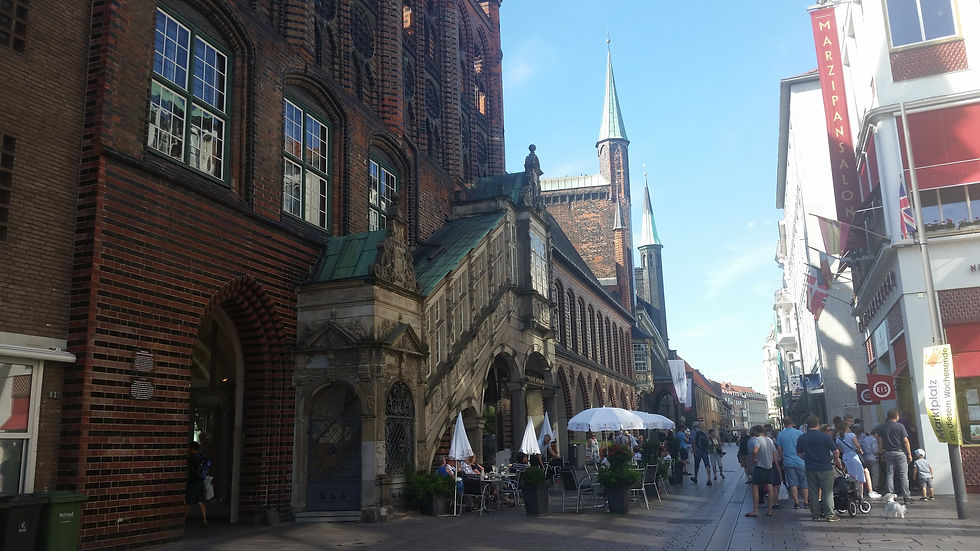The Empties
- fourthquarter
- Aug 11, 2018
- 4 min read
Updated: Aug 15, 2018
Isha Kumar
August 11, 2018
This summer, I am living alone. I am, luckily, surrounded by friends and coworkers and given due opportunity to socialize in my off-time, but ultimately I return to an apartment inhabited by no one save for the occasional nighttime visitor. Solitude was a purposeful decision; in the first, I greatly enjoy being alone — a rare commodity as college affords little opportunity to do so. In the second, in isolation, you need not make an impression on the world, and consequently, the world has some opportunity to make an impression on you. In the most cliché way I can imagine, it is during my morning subway ride to work when my mind is most disposed to fuss and hypothesis about such aforementioned impressions — and one I simply cannot master is the knack of living without the magic of endings.
It would appear that many conditions conspire to make life intolerable — among such a category, some might nominate endings as a worthy member. Endings are a curious thing, but in retrospect, my life has been a Matryoshka doll full of them. All stages of my life, thus far, can be easily compartmentalized into beginnings with delineated ends — elementary school lasts for six years, college for four, in which we may further subdivide — quarters last ten weeks, and assignments finish and start in week increments. You see? There really is no limit to those things with expiry dates — they nest within themselves, infinitely spiraling. The result being, I fear to say, is that endings are the only sort of living I have ever known.
The worst part about all of this is that I like it. I actually enjoy endings. There’s something about limited edition that is dreadfully appealing, that magnifies the quality of exquisite attention to experience that you simply don’t get with forever. Take my summer job, for example. By all accounts and measures, I am doing something which I should, (and do) love consistently. I’m designing and engineering for a company which I admire, with coworkers whom I respect, but I cannot help asking myself — do I love my job because I authentically love my job or simply because I won’t have it for very long? Does knowing it will wrap up tidily in a matter of weeks push me to “make the most of it” — to experience more, love better, and try harder? Would I make moments matter if forever was their timeline?
Something in forever makes the ordinary obscene. A good job, forever? Taking the subway to work, forever? (Though for an added reason: I have seen so many rats.) But the question of a fulfilling job for the summer I answer with resounding excitement, and subway rides coupled with the phrase “only a summer” adds a sort of romance — of noticing that this moment in time has presented you with a myriad of lives that remain vibrant, desirable, and just out of reach to enter — a noticeably absent thought when eternity is a prerequisite. The very same things I am doing, and loving now, might not be so prized were it not for their transient lifespan.

On a broader scale, we can say that it is perhaps the knowledge of death that pushes us to grip life by the horns, shake it about and wring out the most we can. It is knowing that college, the “best time of my life”, will be over in now only two years that pushes me to experience it in a way that is traditionally fulfilling — in a way where I create memories worth telling stories about. I spend my time purposefully only because I am acutely aware of its scarcity. But were I at Stanford for the rest of my life, knowing that, would I still do all that I have?
Oddly, I have often railed against the idea of putting effort into that which will not last. What is the point after all, when you won’t reap the rewards for eons to come? Why attempt to resolve a feeling that you know to be temporary?
But I think I have molded a new understanding of permanent versus temporary. What I perhaps have not known in all my protests against goodbyes, is that I have never really operated without them. Moments of purpose are created by the ephemeral. It provokes gratitude and tames impatience (it’s easy to push hard when you know the class is over in ten weeks), but the vacuousness of forever requires sustained passion, sustained purpose, and those I’m not sure I have ever felt.
Experience answers to mortality. We build peaks in our lives knowing that soon we must descend them. But forever turns highlands into flatlands — and soon the topography of our life loses its allure.
I have no visible pretext for a life that simply is — a life that extends ceaselessly and without variation. What does it mean to begin something without knowing when, or rather if, it will finish? How do you create passion and purpose that lasts a lifetime, when all you have ever known are expiry dates? I have a home in the temporary — always existing in temporary places, doing temporary things, at times even with temporary people. I’m not sure I know how to live in a space without endings. How do we acquire the courage to live a life — purposefully — that, save for an ultimate end, exists independently of countdowns?
I love living alone. But if I did it forever, maybe I wouldn’t. Maybe all that I love in life and know about myself is true only with the condition that it doesn’t have to last.







Comments